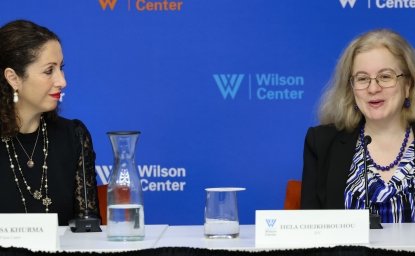Can Technology Stop Gender Based Violence?
Sandeep Bathala, Senior Program Associate for the Environmental Change and Security Program and the Maternal Health Initiative at the Wilson Center, discusses Gender Based Violence and explores ethical questions surrounding the use of new technologies to combat what some describe as a global epidemic.










